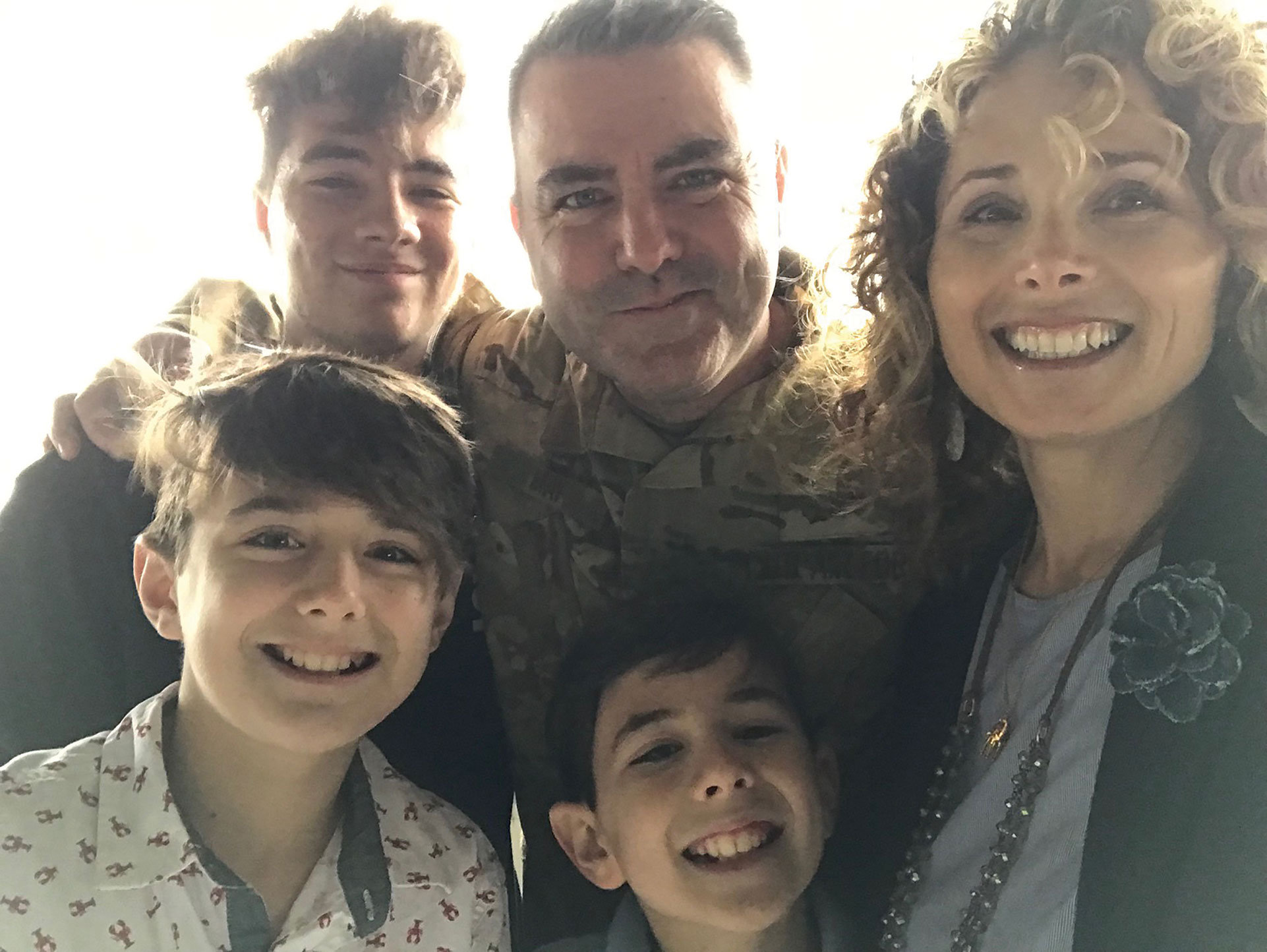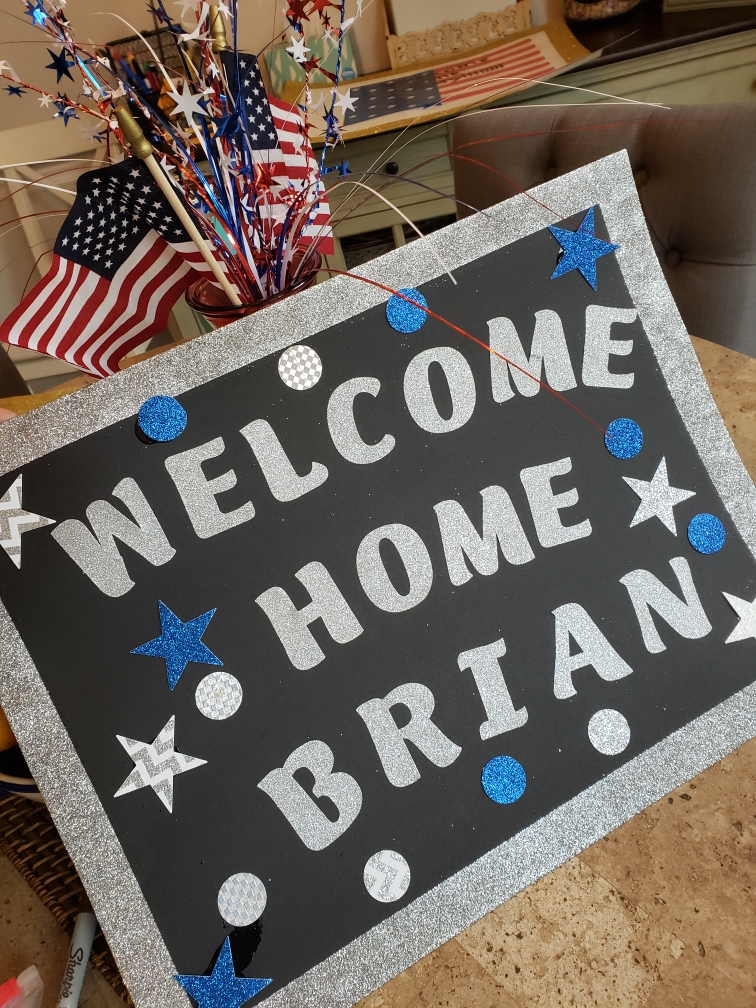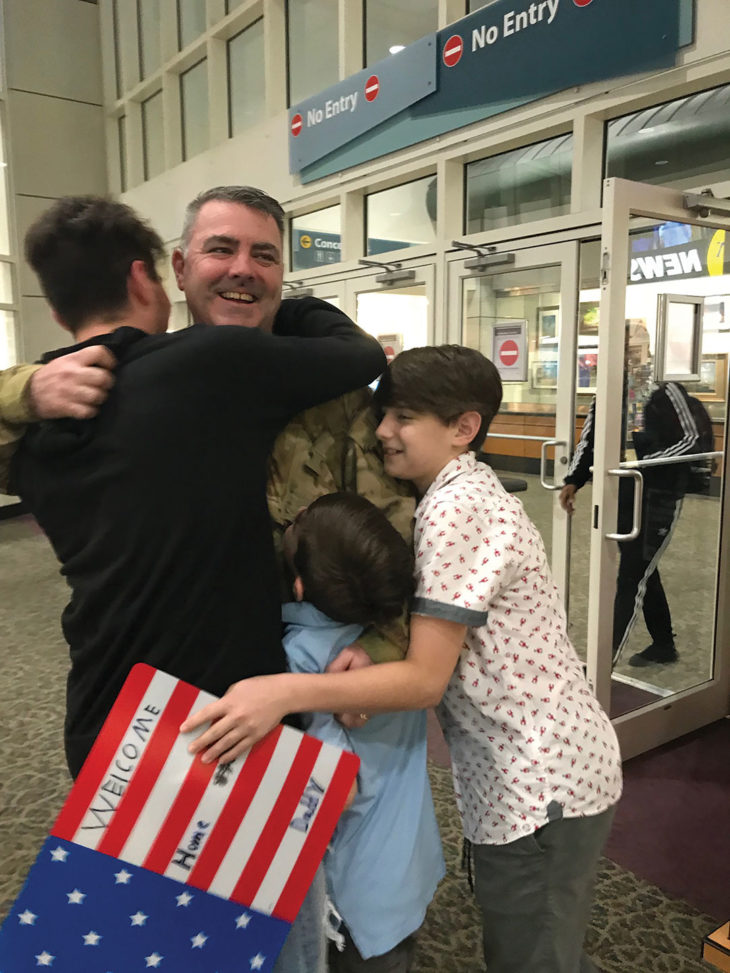For military spouse Kathy May, the first part of her husband’s deployments tend to be the hardest.
“That’s when life slows down for the family; we feel the separation the most,” says May, who is married to Col. Brian May, 403rd Operations Group commander at Keesler Air Force Base. “We are the ones feeling the loss. Our normal is off balance as we’re trying to find our new normal.”
Throughout her husband’s nearly 30-year career, May has endured numerous separations ranging from 30 days to a year while her spouse served in locations in the Middle East, Asia and Africa. Most recently, May spent six months in Kuwait, returning home to Ocean Springs in January.
Meanwhile, Kathy pressed on caring for the couple’s three boys: Cameron, 16; Giovanni, 13; and Dario, 10.
The greatest challenge, she says, is “the sheer fact of knowing that I am the one and only (person) to take care of everything in the household and family — while balancing the fear and anxiety of keeping the kids at peace with their ‘new’ normal.”
May’s experience will sound familiar to many Gulf Coast women who hold down the home front while their spouses are overseas. At a time when they are weighed down with the emotional toll of separation — often feeling lonely and overwhelmed — military spouses must perform at their peak.
Among those who can relate is Windy Stanton, wife of Col Robert Stanton, 403rd vice wing commander at Keesler.
“You just get up every day and put on your clothes and keep going,” Stanton says of her coping strategy. “His job was to fight for our freedom. The least I could do was to to keep everything at home going strong.”


Stanton’s first five-month deployment in 1990, during the Gulf War, was followed by stints to Oman and Kuwait for six months — and several four- to six-week separations during his 31-year career. The worst part of those pre-Internet days for Stanton was the lack of communication; the main means of keeping in touch was letters.
“He called home twice in five months; it was always in the middle of the night, and it was very difficult to talk, as we had to say ‘over’ after every sentence,” she recalls. “The worst part was not knowing where he was or if he was OK.”
Daily news reports brought word of rockets hitting bases and barracks. Planes were taking fire from enemy combatants.
“It was very scary, and dealing with the unknown is tough,” Stanton says. “But we had a great support system of wives that got together every week to share news and information.”
COMBATING LONELINESS
Being quickly thrown into single-parent mode, May says she tries to stay busy enough to keep her worries at bay. Gardening, scrapbooking, baking, sewing and continuing her education have provided an outlet compatible with being a mom.
“During the silence of the loneliness, I try and fill it with projects that I haven’t had time for or start new activities,” May says. Even if she’s not watching TV, she says the background noise can be a welcome distraction.
Stanton calls her faith her “best coping strategy” and her friends and neighbors her “best support system.” In the past, she hesitated to ask for help, then her phone stopped working during a deployment. She tearfully loaded her two small children into the car and went to church, where a neighbor enlisted her husband to fix the problem. Through that experience, she found the best policy was being proactive.
“Yes I was lonely,” she admits, “but being connected to the community is a big help. The more connected you are, the more friends you have. And if you have a job, even a part-time one, that keeps you busy so you’re not dwelling on the loneliness.”
‘WORRY, FEAR, CONCERN, APPREHENSION AND SADNESS’
Unlike a civilian spouse on a business trip, May says, military members serve in some of the planet’s most hostile places, making anxiety a constant companion for those they leave behind. Communication may not be possible for days at a time, and there’s little possibility of reuniting before the appointed return date — whether for holidays, birthdays or moments of need.
“The day he leaves, a part of yourself and your children’s father is being ripped away to live in an area and to do a job that the majority of Americans would not do,” May says. “While you continue moving at a normal pace, keeping things operating as peaceful as possible for your children and what peace of mind you can give yourself, in the back of your head, there is worry, fear, concern, apprehension and sadness — all while holding back tears and not letting it overtake your daily thoughts.”


NOT ALONE
For spouses who are struggling, Stanton and May stress that they don’t have to suffer alone. They urge those affiliated with Keesler to take advantage of the services offered for their benefit, particularly through the Airman and Family Readiness Center.
“The military has come a long way in providing for the families of our deployed troops,” Stanton says. “In years past, there was a definite disconnect.”
While that issue may still exist, especially for Guard and Reserve families that don’t live near the base they’re attached to, May and Stanton say help is available. The Key Spouse program, for instance, trains volunteers to be liaisons and advocates for family members of the deployed.
May counts herself fortunate enough to have always had great friends, who have stepped in during dire circumstances. For instance, the day her husband left on one of his deployments, she says one of their children almost succumbed to drowning. A combination of civilian and military friends came to the rescue.
“They took over handling my other children, (taking care of the) house, cooking, and making arrangements for family to come in town,” she says. “Then as things calmed down, they were there to monitor my well-being.”
Even if a spouse seems to be handling the situation well, Stanton says they appreciate knowing others are thinking of them. Simply checking on them can be enough to lift their spirits.
“Bring over dinner one night, or a plate of cookies — or a card, or flowers,” she suggests. “A little kindness goes a long way.”


